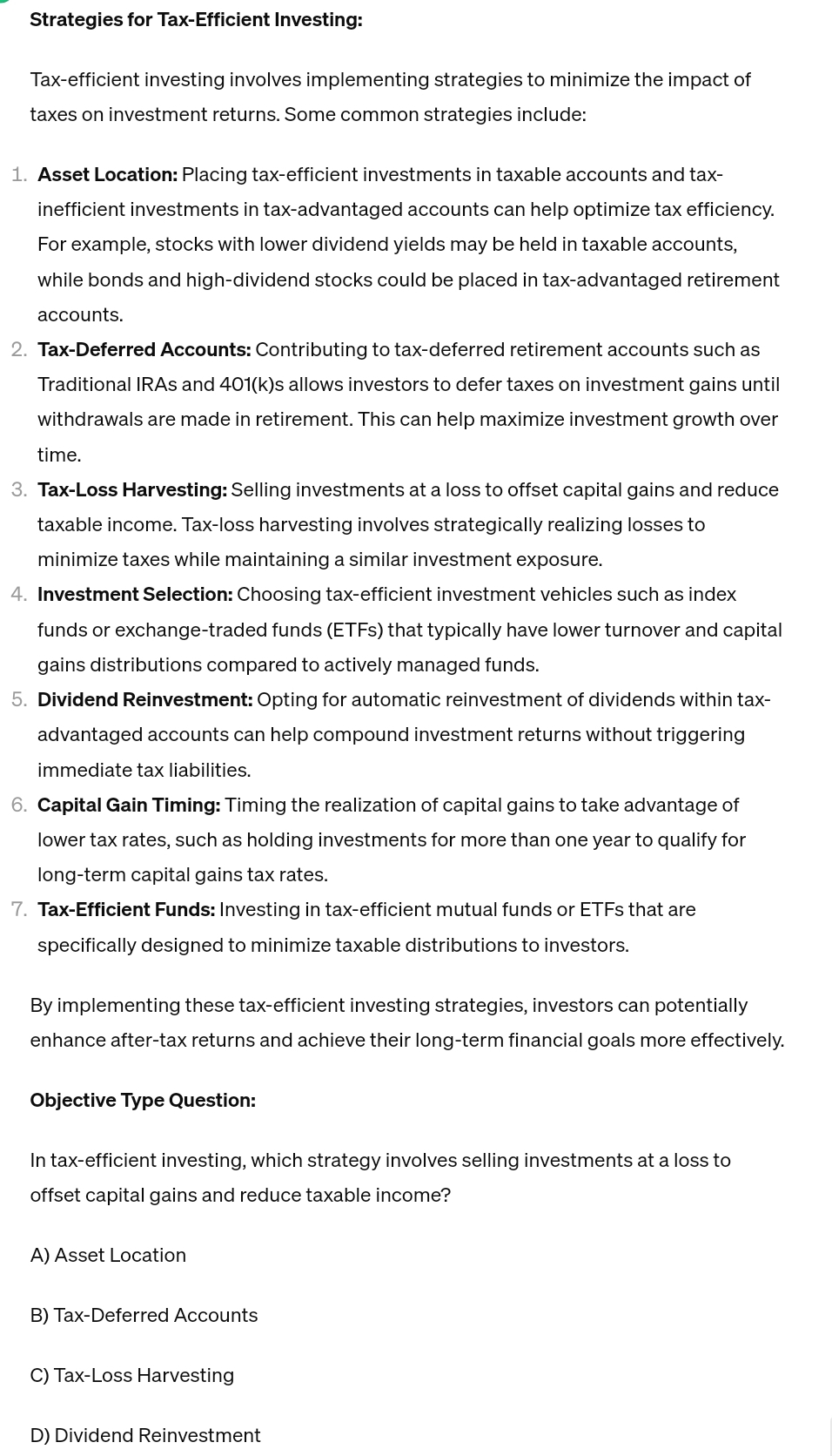Answered step by step
Verified Expert Solution
Question
1 Approved Answer
Strategies for Tax - Efficient Investing: Tax - efficient investing involves implementing strategies to minimize the impact of taxes on investment returns. Some common strategies
Strategies for TaxEfficient Investing:
Taxefficient investing involves implementing strategies to minimize the impact of taxes on investment returns. Some common strategies include:
Asset Location: Placing taxefficient investments in taxable accounts and taxinefficient investments in taxadvantaged accounts can help optimize tax efficiency. For example, stocks with lower dividend yields may be held in taxable accounts, while bonds and highdividend stocks could be placed in taxadvantaged retirement accounts.
TaxDeferred Accounts: Contributing to taxdeferred retirement accounts such as Traditional IRAs and ks allows investors to defer taxes on investment gains until withdrawals are made in retirement. This can help maximize investment growth over time.
TaxLoss Harvesting: Selling investments at a loss to offset capital gains and reduce taxable income. Taxloss harvesting involves strategically realizing losses to minimize taxes while maintaining a similar investment exposure.
Investment Selection: Choosing taxefficient investment vehicles such as index funds or exchangetraded funds ETFs that typically have lower turnover and capital gains distributions compared to actively managed funds.
Dividend Reinvestment: Opting for automatic reinvestment of dividends within taxadvantaged accounts can help compound investment returns without triggering immediate tax liabilities.
Capital Gain Timing: Timing the realization of capital gains to take advantage of lower tax rates, such as holding investments for more than one year to qualify for longterm capital gains tax rates.
TaxEfficient Funds: Investing in taxefficient mutual funds or ETFs that are specifically designed to minimize taxable distributions to investors.
By implementing these taxefficient investing strategies, investors can potentially enhance aftertax returns and achieve their longterm financial goals more effectively.
Objective Type Question:
In taxefficient investing, which strategy involves selling investments at a loss to offset capital gains and reduce taxable income?
A Asset Location
B TaxDeferred Accounts
C TaxLoss Harvesting
D Dividend Reinvestment

Step by Step Solution
There are 3 Steps involved in it
Step: 1

Get Instant Access to Expert-Tailored Solutions
See step-by-step solutions with expert insights and AI powered tools for academic success
Step: 2

Step: 3

Ace Your Homework with AI
Get the answers you need in no time with our AI-driven, step-by-step assistance
Get Started


